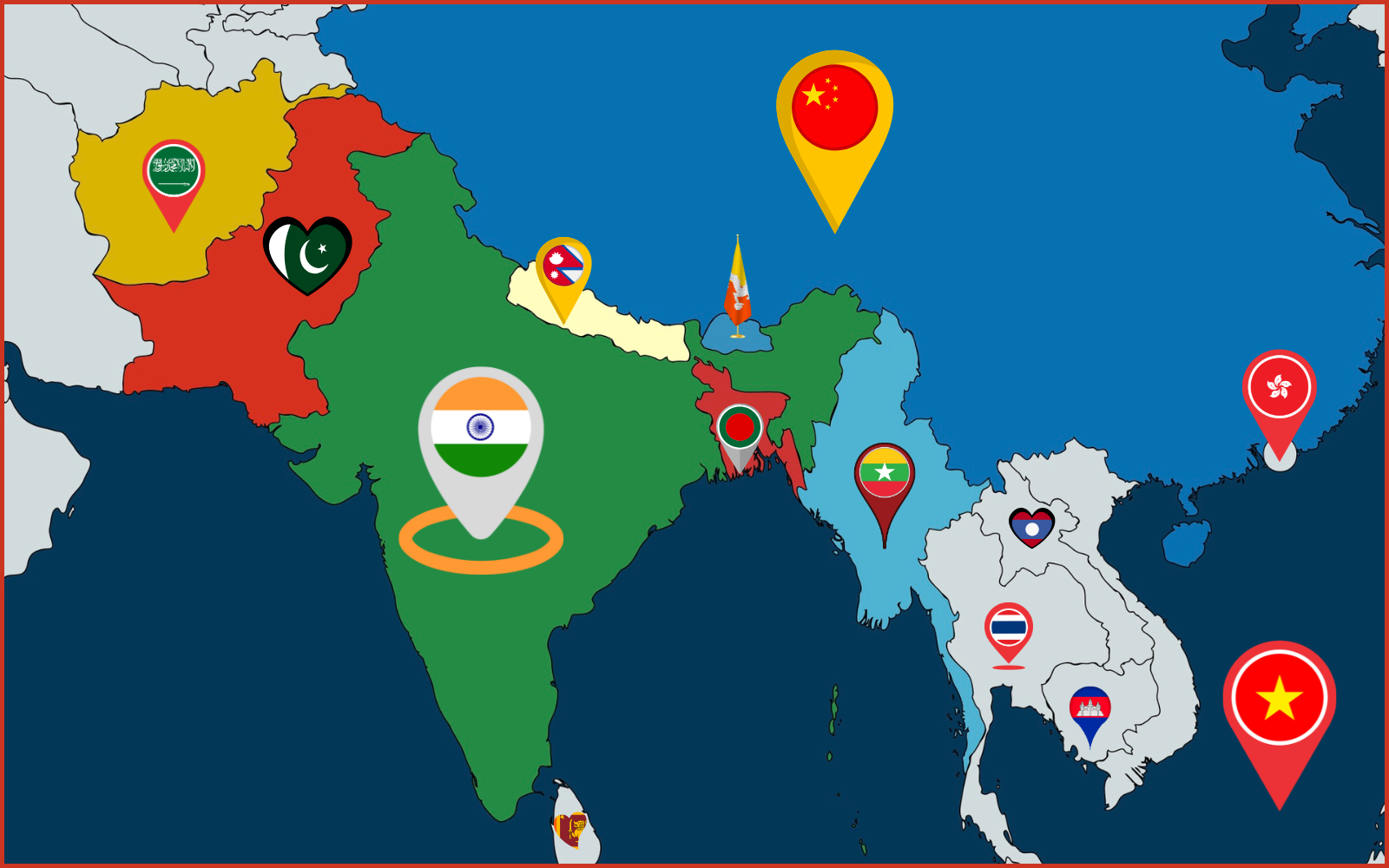Before writing about Bangladesh, I want to say one thing from my heart, “Welcome Home” to the Israeli hostages who were held by Hamas. Their freedom is not just Israel’s relief; it is a victory of humanity over cruelty. No one deserves to live in fear, and no mother should wait in silence for her child again.
Let’s now turn to the main topic. I may sound sarcastic, but what I am discussing is one of the most pressing issues in South Asia today.
Pakistan is facing a deep internal crisis. The country that once dreamed of leading the Muslim world is now fighting a war on its own border. The Afghan Taliban have taken control of several Pakistani posts. In return, Pakistan has bombed Afghan villages. The same Taliban that Pakistan once trained are now attacking them.
This is not a war for defense. It is a war to survive. Yet, in Dhaka, the interim government of Bangladesh still looks to Pakistan as a friend and even as a model. But how can a state that cannot protect its own borders or pay its debts be a guide for anyone else?
Pakistan today is weak and divided. Its economy is near collapse. Daily commodity prices are high, and daily lives have become harder. People are suffering. The army fights on three fronts against rebels, against civilians, and against its own failure. However, instead of learning from this disaster, Bangladesh’s leaders seem to be following the same road. They shout against India, talk about foreign enemies, and avoid the real problems at home.
In just one week, Bangladesh has faced several shocks. Ships are sinking at Chittagong Port. Factories are burning in the Chittagong Export Processing Zone(CEPZ). Business groups are threatening the government to call strikes that may stop all port activity. Yesterday, a massive fire at Dhaka’s Shahjalal International Airport halted flights and cargo operations. A government that cannot control a fire at its own airport cannot dream of fighting India.
Besides, Indigenous people in the Chittagong Hill Tracts(CHT) and minorities in the plain districts are being killed by Islamists. No one is coming forward to save them. Teachers are marching in the street, holding black flags, in Dhaka. Police are throwing sound grenades, and the military is divided into two groups; the election is an illusion. Without an elected government, the country’s political situation cannot be stable.
Solving CHT problems, minority issues, general election, division, and port are the emergency issues for the government of Bangladesh.
Every Friday, the same scene repeats. Processions come out of Baitul Mukarram shouting against Israel, India, and America, as if noise could fix what neglect has broken. Blaming outsiders has become an easier model in Bangladesh than solving problems.
It is easy to say that foreigners are behind everything happening in Bangladesh, but none of them burned Dhaka’s airport or sank ships at Chittagong Port. These failures were made at home. Whether you agree with me or not, the truth is that corruption, mismanagement, and arrogance are burning the country from within faster than any outside enemy ever could.
We know the history, and we remember 1971, when Pakistan said our freedom movement was an Indian conspiracy. The Pakistani government tried to silence the people of East Pakistan (Bangladesh). Pakistan lost its country instead. Today, Bangladesh is repeating that same mistake, only in a different form. As a Bangladeshi, sadly, I confess that the Yunus government is copying the mindset of the state we once escaped.
Pakistan’s roar no longer brings fear. It brings pity. It is a loud voice of weakness, not strength. And if Bangladesh continues to follow that voice, it will soon lose its own. India, in contrast, is quiet but steady. While we burn our airports, India builds new ones. While we shout, India works.
No one from outside burned Dhaka’s airport or sank the ships at Chittagong Port. These are our failures. Every time a leader blames another country, the truth becomes harder to discern. And every lie told in the name of nationalism takes us closer to collapse. How sad it is!
Real strength does not come from slogans. It comes from honesty, unity, and self-control. Pakistan has already lost these things. Bangladesh still has a chance to keep them if its leaders stop imitating Pakistan and start rebuilding their own house.
The government of Bangladesh must stop following a country that cannot fix itself. A nation that learns from another’s failure can survive, but a nation that copies it will fall the same way. When that fall begins, no slogan, no march, no blaming, and no prayer will stop it.
October 19, 2025
Tokyo, Japan
Purna Lal Chakma is from Chittagong Hill Tracts, Bangladesh, one of the most persecuted Christians. He studied M.Th. and has 14 years of experience pastoring in an Islamic-majority country like Bangladesh. He is an experienced person about how radical Islamists see Christians and Jews. He also knows how Islamists think about Israel. Now, he is just a simple travel blogger in Tokyo.
